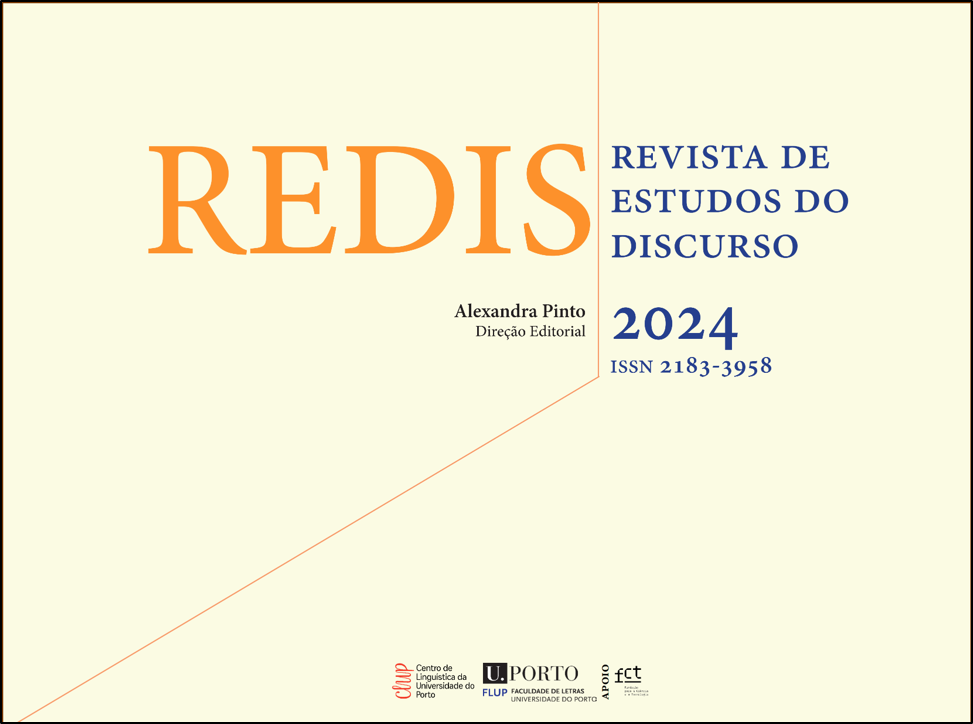Sobre a escrita acadêmico-científica: o ensaio da perspectiva de pós-graduandos
DOI:
https://doi.org/10.21747/21833958/red15a6Palavras-chave:
Escrita acadêmico-científica, Ensaio, RepresentaçãoResumo
Neste artigo, analisamos relatórios de leitura produzidos por estudantes no âmbito de uma disciplina de pós-graduação, ministrada como oficina em letramentos acadêmicos, na qual foram problematizadas fronteiras tradicionalmente supostas como indiscutíveis para a ciência, as quais, no fazer científico e em sua escrita, se marcariam pela exclusão de subjetividade, pessoalidade e opinião, em favor da objetividade, impessoalidade e verdade. Para a produção do relatório de leitura, foi solicitado que os estudantes confrontassem as orientações de um manual de redação técnica e científica com um dentre três excertos de ensaios, produzidos por três autores diferentes de três diferentes áreas do conhecimento, de tal modo que o confronto contemplasse características formais, incluindo as de caráter enunciativo. Objetivamos, assim, investigar as percepções desses estudantes acerca de valores científicos, especificamente acerca das possíveis tensões resultantes entre as orientações uniformizadoras do manual e o ensaio, gênero que, embora presente em diversas áreas do saber, não se submete a certos imperativos que regem as práticas contemporâneas de escrita acadêmico-científica. A análise de 32 relatórios e sua interpretação foi feita de uma perspectiva discursiva em linguística aplicada. Os resultados revelam como mais visíveis para os estudantes: (a) a ausência de suporte teórico explícito nos ensaios, avaliada, nos relatórios, como uma deficiência da argumentação dos ensaístas; (b) a ausência de referências bibliográficas em certas passagens; (c) a presença marcada da figura do sujeito no texto tida como “liberdade” de criação. As três observações destacadas pelos estudantes dão notícia de uma representação da escrita acadêmico-científica, dominante entre eles.
Referências
Abramo, P. (2003). Padrões de manipulação na grande imprensa. Revista Perseu (1), 15-53. Editora Fundação Perseu Abramo.
Adorno, T. (2003). O ensaio como forma. In Notas de Literatura I (pp. 13-42). Duas Cidades.
Assis, J. A. (2014). Representações sobre os textos acadêmico-científicos: Pistas para a didática da escrita na universidade. Estudos Linguísticos, 43, 801-815.
Bakhtin, M. (2003). Estética da criação verbal. Martins Fontes.
Bauman, Z. (2001). Modernidade líquida. Zahar.
Faraco, C. A. (2009). Linguagem & diálogo: As ideias linguísticas do Círculo de Bakhtin. Parábola Editorial.
Guilhaumou, J. & Maldidier, D. (2010). Efeitos do arquivo: A análise do discurso no lado da história. In: Gestos de leitura: da história no discurso (pp. 45-68). Editora da UNICAMP.
Larrossa, J. (2003). O ensaio e a escrita acadêmica. Educação e Realidade, 28(2), 101-115.
Lukács, G. (2017). Sobre a essência e a forma do ensaio: Uma carta a Leo Popper. Revista UFG, 12(2), 25-43.
Martins, R. X. (2020). A covid-19 e o fim da educação a distância: Um ensaio. EmRede - Revista de Educação a Distância, 7(1), 12-34.
Pêcheux, M. (2009). Semântica e discurso: Uma crítica à afirmação do óbvio. Editora da UNICAMP.
Pêcheux, M. & Fuchs, C. (1990). A propósito da análise automática do discurso: Atualização e perspectivas. In: Por uma análise automática do discurso: Uma introdução à obra de Michel Pêcheux (pp. 163-252). Editora da UNICAMP.
Possenti, S. (2011). Humor e imaginário sobre práticas científicas. In Anais do IX Congresso Latino-Americano de Estudos do Discurso (pp. 40-81). UFMG
Soares, M. do C. S. (2011). Manual de redação técnica e científica. Instituto Nacional de Pesquisas (INPE).
Downloads
Publicado
Como Citar
Edição
Secção
Licença
Direitos de Autor (c) 2024 João Vitor Moreira, Manoel Luiz Gonçalves Corrêa

Este trabalho encontra-se publicado com a Licença Internacional Creative Commons Atribuição 4.0.
Os autores cedem à REDIS: Revista de Estudos do Discurso, o direito exclusivo de publicação dos seus textos, sob qualquer meio, incluindo a sua reprodução e venda em suporte papel ou digital, bem como a sua disponibilização em regime de livre acesso em bases de dados.




